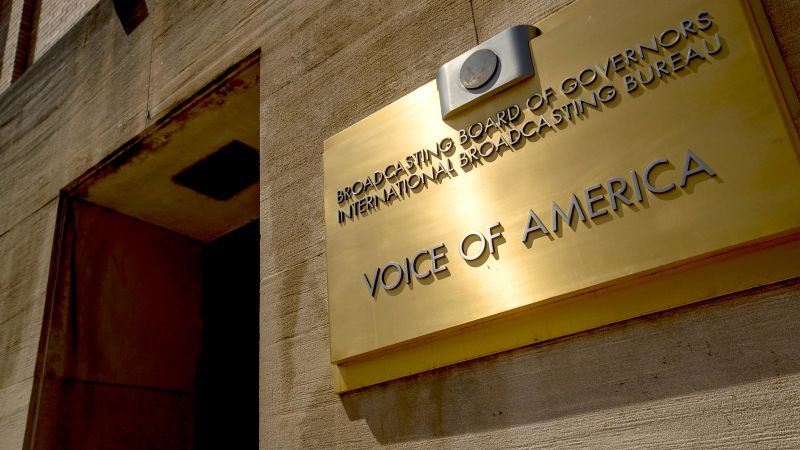The Voice of America (VOA), a key government-funded entity responsible for producing journalism that promotes democratic values abroad, has faced significant challenges in recent months. Just a few weeks ago, the network was effectively silenced when the Trump administration enacted measures to halt its operations. This action drew sharp criticism from many quarters, including Kari Lake—an ardent supporter of former President Donald Trump—who had previously labeled the agency as “unsalvageable.”
In a surprising turn of events, Lake has since shifted her stance and is now working to restore VOA to functionality. It was reported that the network is on the brink of coming back online, with Lake communicating a renewed sense of cooperation in a memo directed to the staff that she had sidelined back in March. As an indication of positive change, around 1,400 employees and contractors associated with VOA and its parent organization, the U.S. Agency for Global Media, have regained access to their email and other essential systems after a prolonged period of disruption.
The narrative took a critical turn as federal courts issued rulings that challenged the Trump administration’s authority to silence U.S.-funded international broadcasters. This led to the decision to allow staffers back to their offices, with programs expected to resume shortly thereafter. However, despite the renewed access, the U.S. Agency for Global Media has not issued any public comments regarding these developments, highlighting a persistent air of uncertainty surrounding the agency.
The task of reviving the VOA is no small feat. Steve Herman, VOA’s chief national correspondent, remarked on the “Herculean effort” required by the nearly 50 language services to reconnect with a pre-shutdown audience estimated at 340 million. The abrupt cessation of operations on March 15—a result of an executive order signed by Trump—left both staffers and listeners in disarray. Reports indicate that employees were instructed to halt their duties mid-shift, leading to a moment of confusion and disruption, with some stations resorting to music broadcasts in place of news.
In addition to halting VOA operations, the order also terminated funding for other entities such as Radio Free Europe/Radio Liberty and Radio Free Asia, which historically depended on government support. As funding dwindled, these broadcasters were forced to implement layoffs and cost-cutting measures to stay afloat, complicating their efforts to maintain presence in the media landscape.
The situation created a bureaucratic limbo wherein VOA staff began exploring opportunities outside the agency while maintaining hope for a judicial intervention. Their call was answered when Judge Royce C. Lamberth ruled in April that the administration was “likely in direct violation of numerous federal laws,” which mandated the reinstatement of VOA personnel to their roles.
Though the legal victory was only a preliminary injunction and the administration quickly appealed, Lamberth’s ruling seemed to trigger a re-evaluation of the administration’s stance towards VOA, resulting in the recent memo of reinstatement sent by Lake.
Despite the court ruling in favor of VOA, skepticism still envelops the sentiment among staff who remain wary of the administration’s hostility towards the network. A Trump-era press release characterized the U.S. Agency for Global Media as riddled with “massive national security violations” and “obscene over-spending,” framing the organization in a negative light and suggesting a lack of support from the government.
As Lake shifts her focus back to moving the agency forward, she expressed optimism about modernizing operations and fulfilling the organization’s mission. She indicated that guidance would follow soon regarding the next steps required for revitalizing the agency. The initial ambivalence, followed by a recent commitment to reinstate the agency’s operations, marks a complex and potentially transformative period for the Voice of America amidst a climate of political and judicial pressures.



